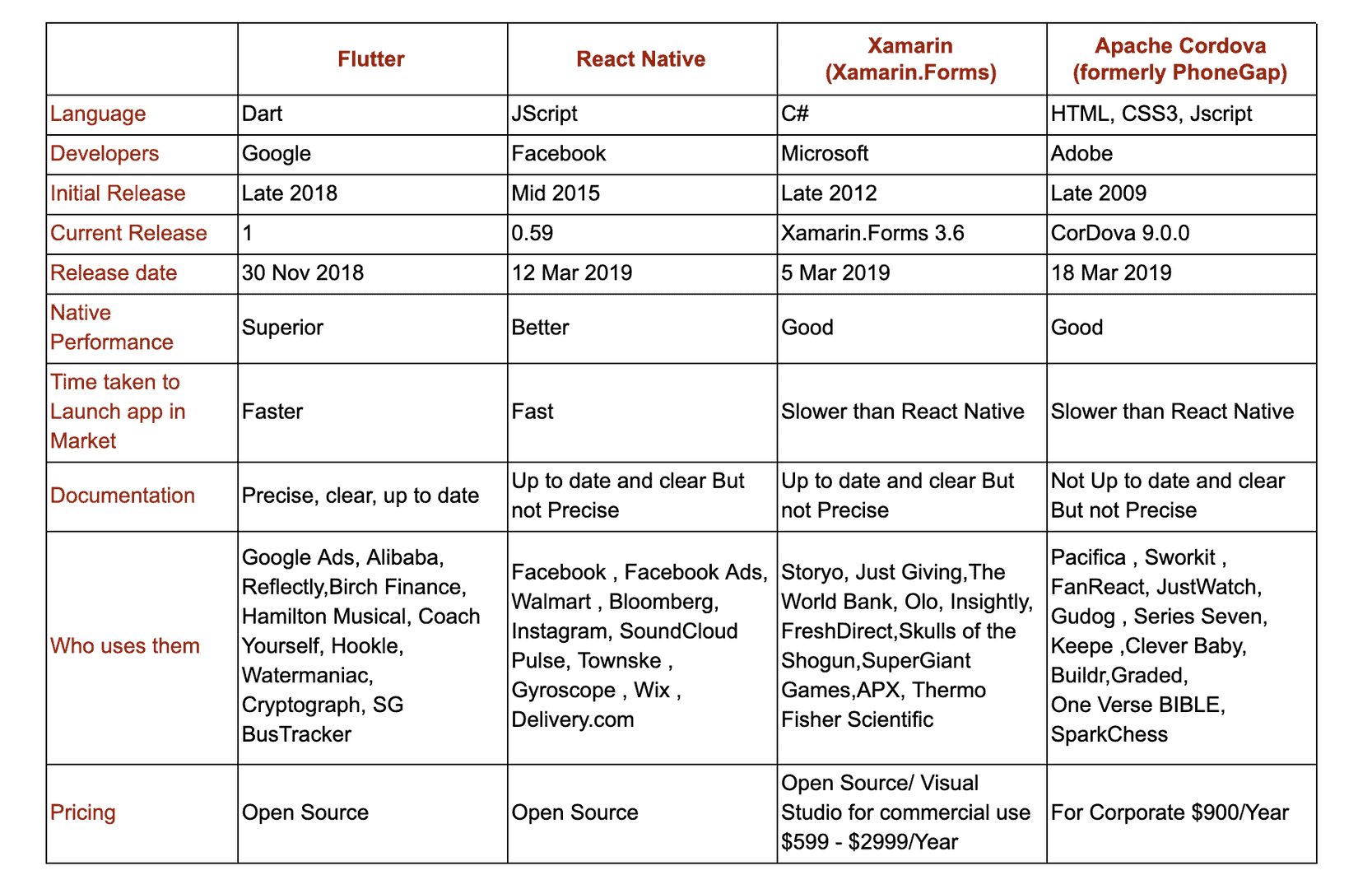Flutter: The Cross-Platform Development Tool for Native App Developers
TL'DR
There are around 2.6 million apps in Google’s PlayStore and 2 million apps in Apple’s App Store as of the third quarter of 2018. Surprisingly, there is no decline in the popularity of mobile apps seems over recent times. There are a lot of apps that are being developed and deployed on the leading app stores day by day.Apart from native app development and cross-platform mobile app development, hybrid app development has become prominent among app developers and business professionals.Each framework has its own unique architecture to build apps with its own pros and cons. While native apps deliver superior user experience, cross-platform app development and hybrid apps designed are to save time and cost along with providing faster time-to-market.Hybrid app development has always been a forte of Web developers. For those who are not familiar with the concept, hybrid apps are apps that are built as Web apps and packaged into Native wrappers. The developers need to be familiar with the HTML5/CSS3's way of coding. The major advantage is that we can have a single code base for multiple platforms, which will increase the code maintainability and reduce the cost of development.While hybrid apps come with their own advantages the adoption rate by native app developers had been extremely low with the existing Hybrid development tools like React Native and Ionic.That's precisely why we decided to run an experiment with our native app developers when Flutter was launched by Google. The results were quite good and the learning curve was pretty less when compared to any other Hybrid app dev tools. This article is meant to give you a general understanding of flutter from our experience.Who are the Game Changers in the market?The below chart explains who all are the hybrid application development game changers in the market in a comparative manner

Flutter in mobile app development:
Flutter’s focus is not only to fill the gap between Android-iOS development but are focused more on building a mobile app in a better way. Native app development has some inherent issues, a lot of which developers don’t have many workarounds for.Here are a few key points for Native app development in FlutterNo large repetitive Gradle build times:Although gradle is a useful tool, the gradle build times for apps are rather large and are a hindrance to fast development cycles. This doesn't mean Flutter apps do not need a Gradle build at all, but they don’t need it multiple times. A flutter build invokes a Gradle build the first time it runs but does not need it again for a full restart of the app.A single language for layout and backend:Android has a separate layout and Java/Kotlin files, we need to get references for views and then alter them in the backend files. Flutter uses a single language(Dart) for design as well as backend and uses a reactive framework, so we don’t need references to widgets(Flutter equivalent of views) at all.Full set of (Material Design) widgets:Another great thing about Flutter is that they have a very rich catalog of built-in UI components. There are two sets of widgets — Material Design (for Android) and Cupertino (for iOS). The best thing is that you can implement every widget on every platform. If you implement some Material Design or Cupertino widget, it’ll look the same on every android and iOS device.In Flutter if you’d like to create some new widget, instead of extending Widget class (as you’ll do in Android by extending some View class), you instead compose new Widget with few small Widgets.Many, many, many packages:Although Flutter is still in alpha version, the community is really big and involved. Thanks to this Flutter has the support of many packages (libraries, just like Gradle dependencies in Android). We have packages for opening images, making HTTP requests, sharing content, storing preferences, accessing sensors, implementing Firebase, and many more. Of course, everyone supports both Android and iOS
Advantages Of Flutter:
- Clean, clear, and smooth documentation
- Google’s support and strong community
- The reliably faster speed of development
- Amazing native app performances
- A wide range of expressive and flexible UI components
- Stateful Hot Reloading for faster change implementation
- Accessibility of native SDKs and their features
- Modern, enhanced, and flexible approach to the coding
- API support for 2D effects, animation, and gestures
- Integrating new features and screen in existing native app
Disadvantages Of Flutter:
- Though Dart is an easy-to-learn and uses programming language, Investment in learning Dart is required for Flutter.
- Difficulties in styling the components as there is no use of JavaScript
- Lifecycle management is a bit Complex when compared with React Native
- Market age of Flutter is less than a year and it isn’t as matured like React Native
- Drag and drop of views and controllers are not available in the current release
Are you looking to build a great product or service? Do you foresee technical challenges? If you answered yes to the above questions, then you must talk to us. We are a world-class custom .NET development company. We take up projects that are in our area of expertise. We know what we are good at and more importantly what we are not. We carefully choose projects where we strongly believe that we can add value. And not just in engineering but also in terms of how well we understand the domain. Book a free consultation with us today. Let’s work together.







.png)
.png)
.png)
.avif)














